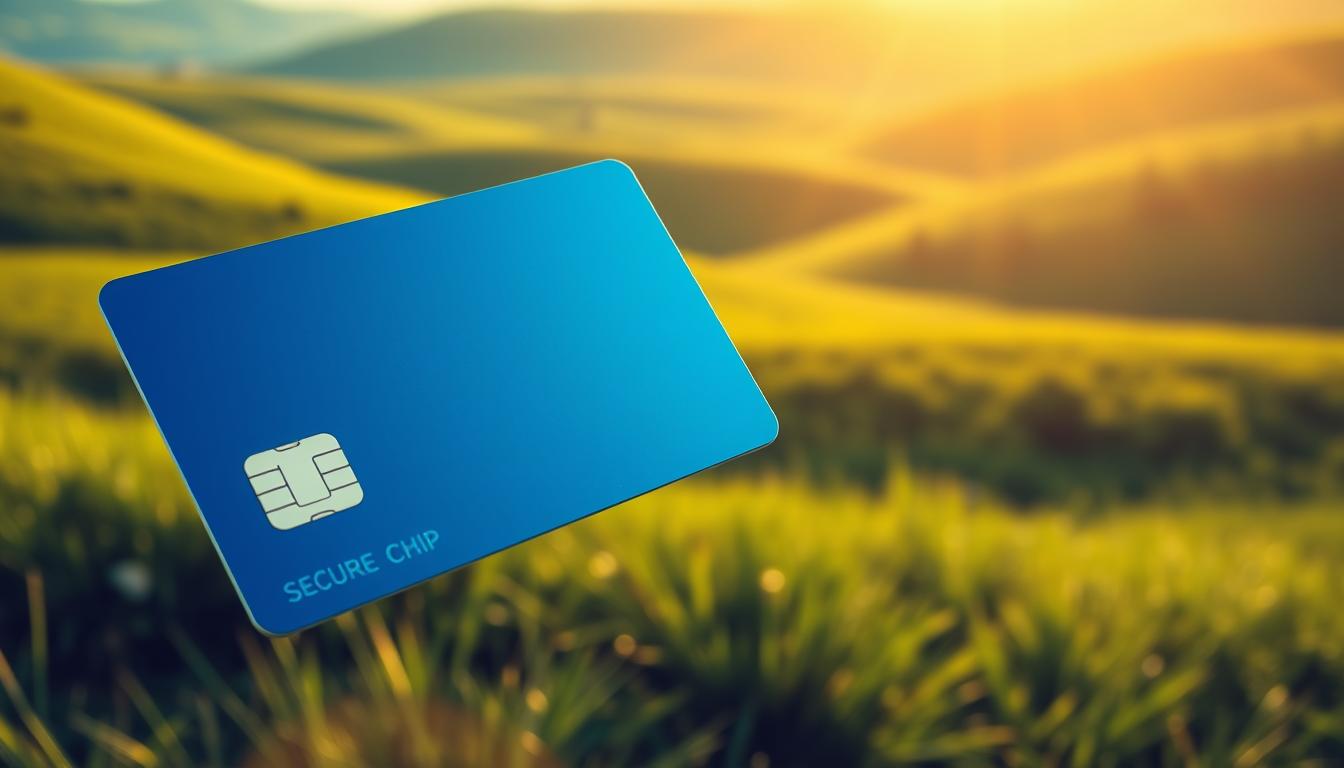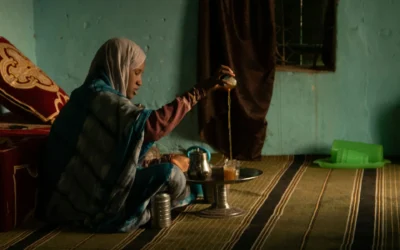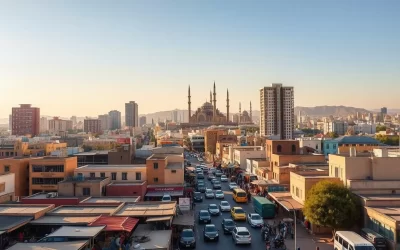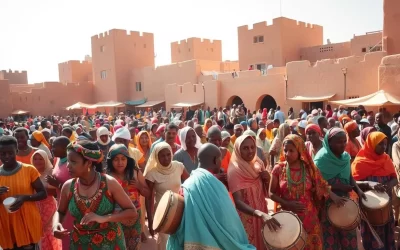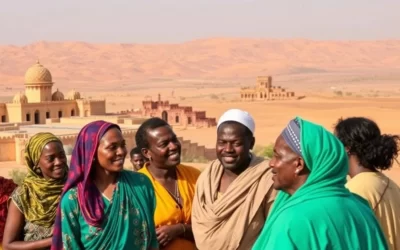✓ Accommodations ✓ Flights ✓ Rental Cars ✓ Tours & Activities
Did you know that 90% of travelers face challenges managing their money abroad? Navigating a new country’s currency and payment systems can be tricky, but with the right tools, your trip can be smooth and stress-free.
When planning your journey, understanding how to handle currency and payments is essential. Whether you’re exploring bustling markets or dining at local restaurants, having a travel money card can save you time and money. These cards often offer competitive exchange rates and low fees, making them a smart choice for international use.
This guide will walk you through the basics of managing your funds, from setting up your card to avoiding unnecessary charges. You’ll also learn the differences between using cash and cards in an unfamiliar place. With the right preparation, you can focus on enjoying your adventure without worrying about your money.
Currency Overview in Mauritania
Understanding the local currency is a key part of any trip. In this region, the ouguiya is the official currency, and knowing its history and current use can make your journey smoother. Whether you’re shopping at a market or dining at a local restaurant, handling the right money is essential.
History and Evolution of the Ouguiya
The ouguiya was introduced in 1973, replacing the CFA franc. It has undergone significant changes since then. In 2018, the currency transitioned from the old ouguiya (MRO) to the new ouguiya (MRU). This change involved removing a zero from the currency, simplifying transactions for locals and visitors alike.
This evolution reflects the country’s efforts to modernize its financial system. It’s important to note that some merchants may still list prices in the old currency. Always confirm pricing with locals to avoid confusion.
Current Denominations and Exchange Rates
The ouguiya comes in both banknotes and coins. Common denominations include 5, 10, 20, 50, 100, and 200 ouguiya notes. Coins are available in smaller amounts, making it easy to handle everyday transactions.
When it comes to exchange rates, 1 USD is approximately 40 MRU, while 1 EUR is around 42 MRU. These rates can fluctuate, so it’s a good idea to check before your trip. Having a travel money card can help you get competitive rates and avoid unnecessary fees.
Here’s a quick guide to help you navigate the currency:
- Carry small denominations for local markets and tips.
- Use a card for larger purchases to save on exchange fees.
- Always confirm prices in the new ouguiya to avoid misunderstandings.
With this knowledge, you’ll be well-prepared to handle your money during your visit. Whether you’re exploring the bustling markets or enjoying a meal at a local restaurant, understanding the currency will make your trip more enjoyable.
Navigating Payment Methods in Mauritania
Managing your money efficiently is a crucial part of any journey. In this region, you’ll encounter a mix of traditional and modern payment options. Knowing when to use cash versus a card can make your trip smoother and more enjoyable.
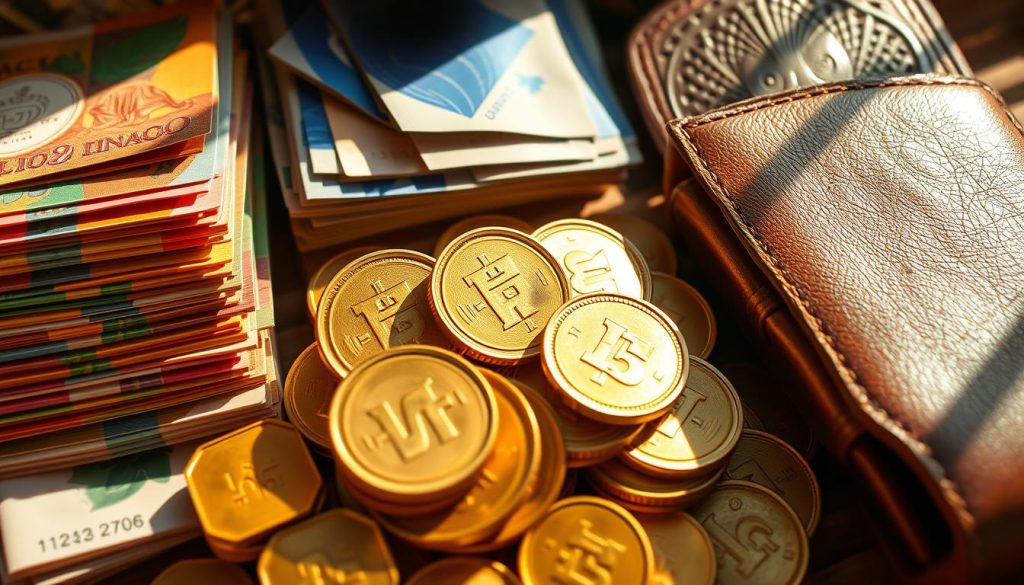
Cash Versus Card: What to Expect
Cash is still king in many places, especially in local markets and smaller shops. Carrying small denominations is essential for everyday transactions. Larger establishments, like hotels and some restaurants, may accept cards, but it’s always wise to have cash on hand.
ATMs are available but can be unreliable. If you’re planning to withdraw money, do so in urban areas like Nouakchott or Nouadhibou. Always notify your bank before your trip to avoid issues with your card.
Utilizing Mobile Wallets and Contactless Payments
Mobile wallets and contactless payments are gaining popularity, especially in cities. These methods offer convenience and security, but their acceptance is still limited. For larger purchases or dining out, a travel money card can be a great option.
Balancing cash and card usage is key. Use cards for bigger expenses and cash for smaller, everyday items. This approach ensures you’re prepared for any situation.
How to Choose the Right Travel Money Card
Not all travel money cards are created equal—pick wisely. The right card can save you time and money, while the wrong one can lead to unnecessary fees and hassles. To make the best choice, focus on features like fees, exchange rates, and accessibility.
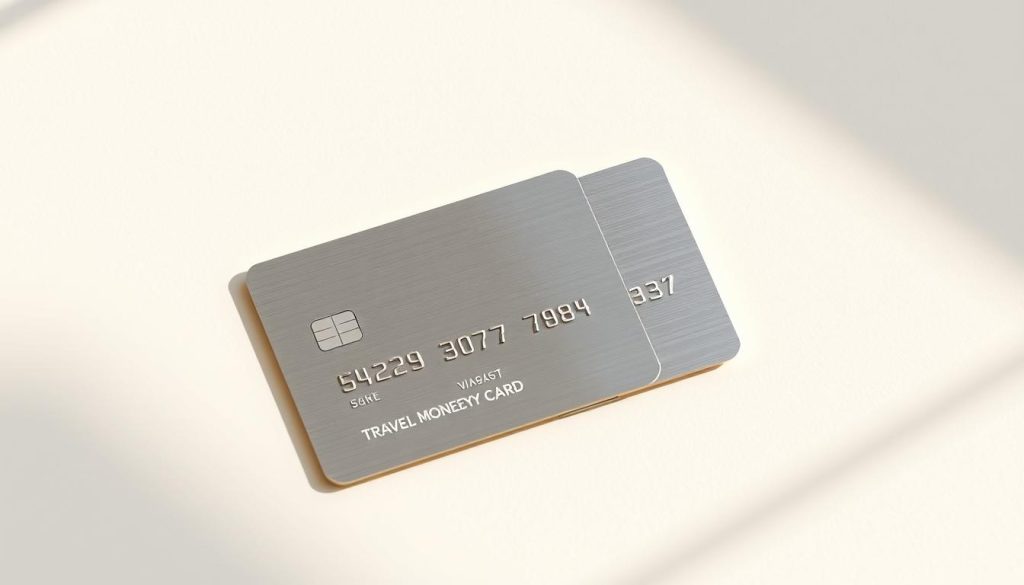
Comparing Card Features, Fees, and Exchange Rates
When selecting a card, compare providers like Chime, Monzo, and Netspend. Look for low foreign transaction fees and competitive exchange rates. Some cards even offer perks like fee-free ATM withdrawals or cashback rewards.
Here’s what to consider:
- Foreign transaction fees: Aim for cards with 0% fees.
- Exchange rates: Choose cards that use the mid-market rate.
- ATM access: Ensure your card is widely accepted abroad.
Tips for Minimizing ATM and Foreign Transaction Charges
ATM fees can add up quickly, so plan your withdrawals strategically. Use cards that reimburse ATM fees or partner with international banks. Always notify your bank before your trip to avoid blocked transactions.
For foreign transactions, opt for cards with no additional charges. Some providers also offer real-time notifications, helping you track spending and avoid surprises.
By choosing the right card and planning ahead, you can enjoy a stress-free trip without worrying about hidden fees.
Mauritania: Ultimate Travelers Guide to Currencies & Payments
Planning your trip? Choosing the right travel card can make all the difference. With so many options available, it’s important to pick one that suits your needs. Popular choices like Chime, Monzo, and Netspend offer unique benefits for international use.
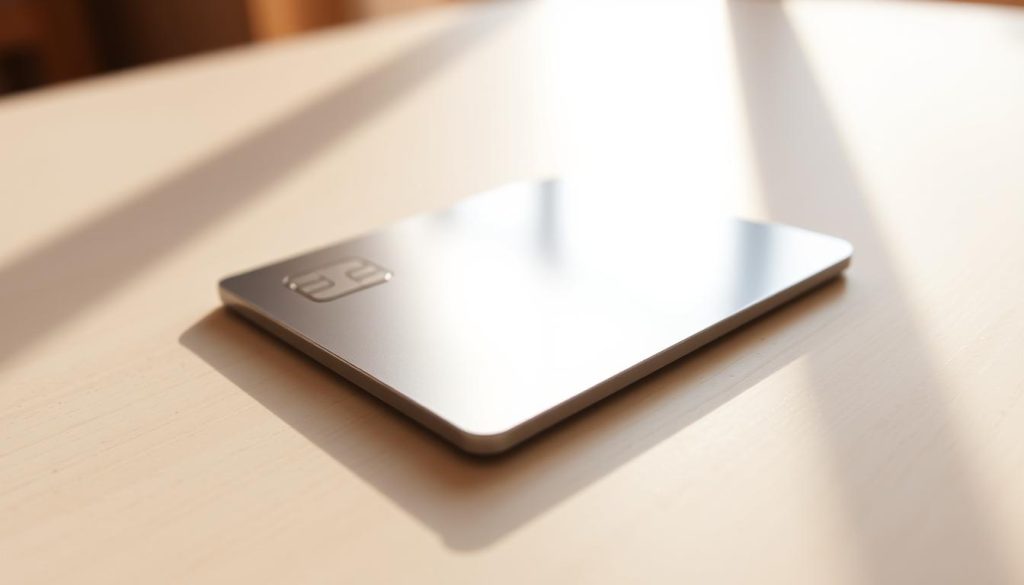
Chime is known for its low fees and no foreign transaction charges. Monzo offers competitive exchange rates and real-time spending notifications. Netspend provides flexibility with reloadable options, making it a great choice for longer trips.
Step-by-Step Guide to Applying for a Travel Card
Applying for a travel money card is simple. Start by researching providers that match your needs. Look for cards with low fees, good exchange rates, and wide ATM access.
Next, complete the online application. You’ll need to provide personal details and verify your identity. Once approved, your card will be mailed to you. Most providers deliver within 7-10 business days.
Before your trip, activate your card and load it with funds. Notify your provider of your travel dates to avoid any issues. With your card ready, you’ll have a secure and convenient way to manage your money abroad.
Using International Travel Cards in Mauritania
Traveling abroad? A reliable travel card can simplify your financial management. These cards are designed to make your trip smoother by offering low fees, competitive exchange rates, and enhanced security. Whether you’re shopping at local markets or dining out, having the right card ensures you’re always prepared.
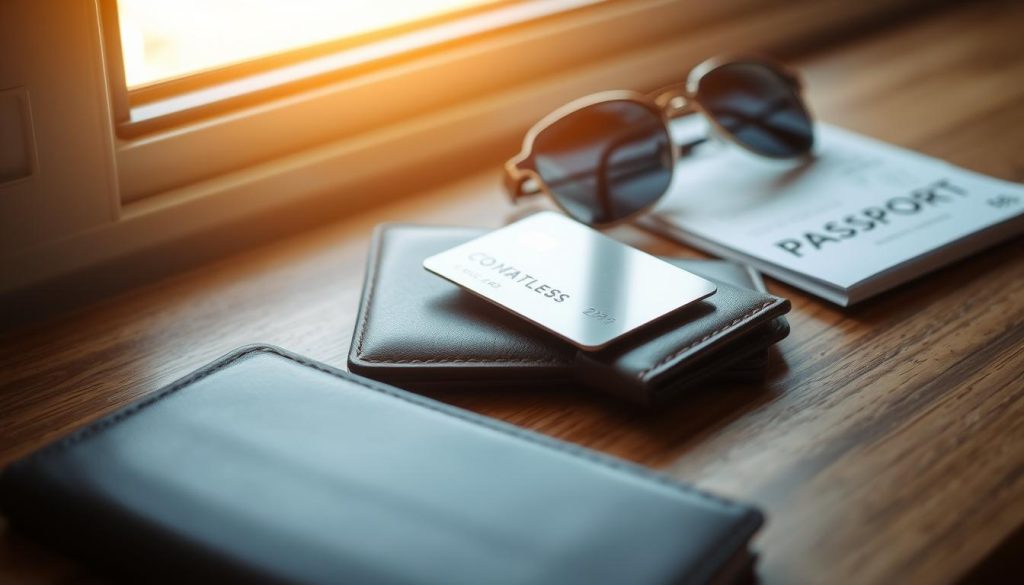
Overview of Popular Providers
Several providers stand out for their international usability. Chime is a top choice with no foreign transaction fees and a user-friendly app. Monzo offers real-time spending notifications and fee-free ATM withdrawals, making it ideal for budget-conscious travelers. Netspend provides flexibility with reloadable options, while Wise excels with mid-market exchange rates and low transaction fees.
Each provider has unique perks. For example, Chime’s daily withdrawal limit is $500, and Monzo’s app helps you track expenses effortlessly. Wise is particularly useful for multi-currency accounts, allowing you to hold and spend in different currencies without extra charges.
Security Features and Benefits of Travel Money Cards
Security is a top priority when managing your money abroad. Most travel cards come with features like two-factor authentication, instant transaction notifications, and card freezing options. These tools protect you from fraud and unauthorized use.
Using a travel card also keeps your everyday bank account safe. If your card is lost or stolen, you can quickly freeze it and prevent further transactions. Plus, many providers offer 24/7 customer support to assist with any issues.
Here’s why travel cards are a smart choice:
- Low foreign transaction fees save you money.
- Convenient ATM access ensures you always have cash on hand.
- Enhanced security features protect your funds.
By choosing the right card, you can enjoy a stress-free trip with peace of mind. Whether you’re exploring bustling cities or remote areas, a travel card is your best companion for managing finances abroad.
Practical Travel Tips and Currency Exchange Advice
Handling your finances wisely while traveling can make or break your trip. Knowing how to budget, exchange currency, and manage your money effectively ensures a smooth and stress-free experience. Here’s how to navigate these challenges like a pro.
Strategies for Budgeting and Managing Local Currency
Start by setting a daily budget to keep your spending in check. Use a travel money card for larger purchases and cash for smaller transactions. This approach helps you avoid overspending and keeps your funds secure.
Carry small denominations of local currency for tips and local markets. Avoid exchanging money at airports or hotels, as they often charge higher fees. Instead, use ATMs in urban areas or visit authorized exchange agents for better rates.
When to Exchange Currency: Before You Leave or Upon Arrival
Exchanging a small amount of currency before your trip ensures you have cash on hand for immediate expenses. However, waiting until you arrive often provides better exchange rates. Research local rates and plan accordingly.
Use ATMs to withdraw local money as needed, but notify your bank beforehand to avoid transaction blocks. Combining cash and a travel card offers flexibility and security, making it easier to manage your funds throughout your trip.
By following these tips, you’ll streamline your spending, avoid unnecessary fees, and enjoy a hassle-free journey.
Conclusion
Smart financial planning can transform your travel experience. By choosing the right travel card, you can save on fees and enjoy competitive exchange rates. This ensures you’re always prepared, whether you’re shopping at local markets or dining out.
Understanding the local currency and its history, like the ouguiya, helps you navigate transactions smoothly. Always confirm prices to avoid confusion and carry small denominations for everyday expenses. Combining cash and a card offers flexibility and security.
Take decisive steps to manage your money wisely. Notify your bank before your trip, use ATMs in urban areas, and exchange currency at favorable rates. With these tips, you’ll enjoy a hassle-free journey and focus on making lasting memories.
The above is subject to change.
Check back often to TRAVEL.COM for the latest travel tips and deals.
Here are some Tours & Sightseeing suggestions that might pique your interests!
